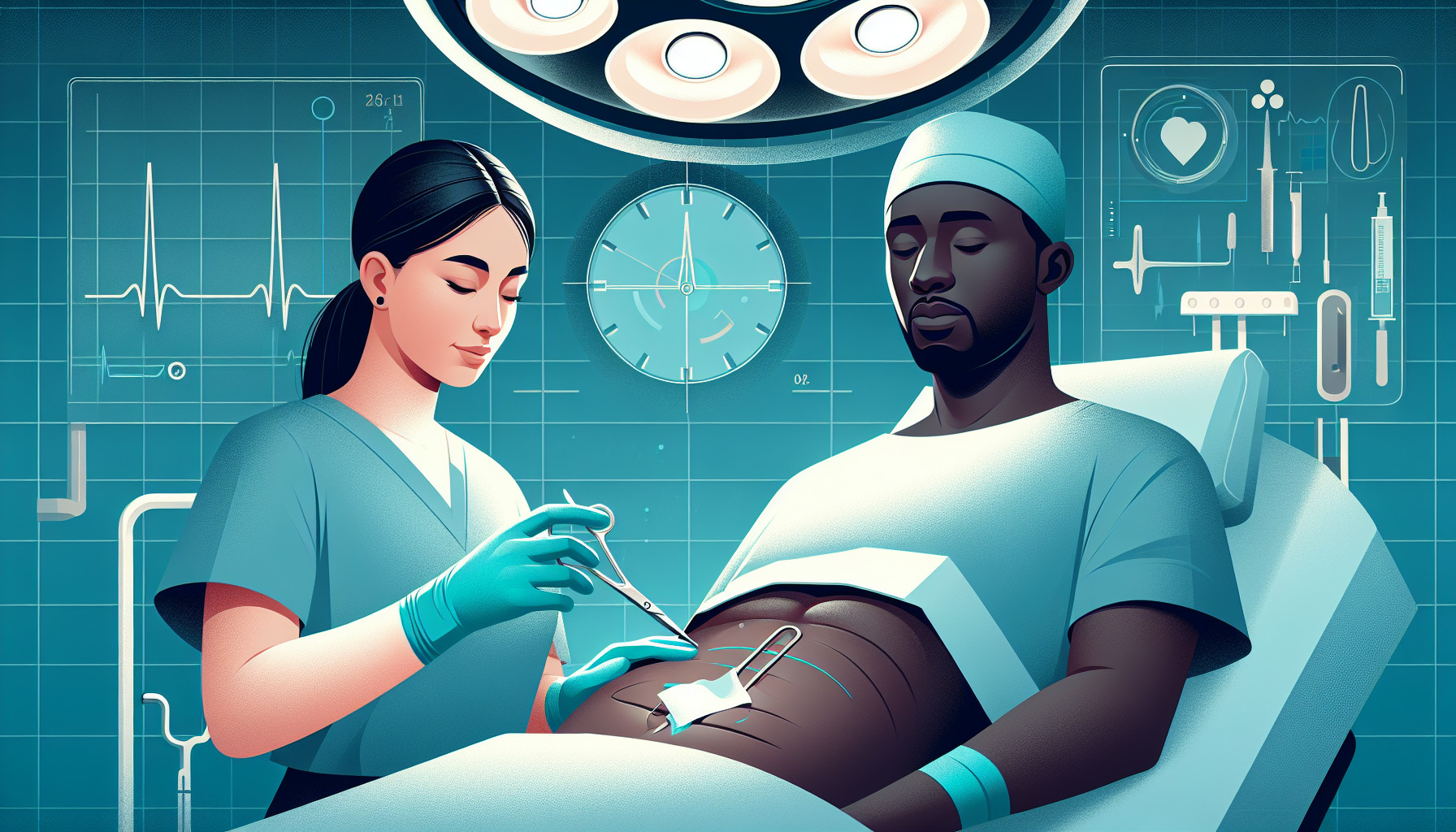Our Summary
This research paper discusses the correct timing and reasons for surgery for diverticular disease, a common abdominal disorder. The study is based on a review of publications from 1998-2018. The paper suggests that immediate surgery is necessary for patients with a certain subtype of the disease where inflammation of the diverticula has caused a hole or tear, leading to infection in the abdominal cavity. Surgery may also be considered for patients with a different subtype involving a large abscess, but only after initial successful non-surgical treatment. The study also suggests that elective surgery could be an option for patients with chronic recurring diverticulitis, particularly if it’s affecting their quality of life. However, surgery is not recommended for patients with no symptoms or uncomplicated diverticulitis, and is only occasionally recommended for diverticular bleeding when non-surgical treatments aren’t effective. The researchers conclude that the need and timing for surgery depend on the specifics of the disease, and further studies should investigate how surgery impacts patients’ quality of life.
FAQs
- When is immediate surgery necessary for patients with diverticular disease?
- Is surgery recommended for patients with no symptoms or uncomplicated diverticulitis?
- How does the need and timing for surgery depend on the specifics of the disease in diverticular patients?
Doctor’s Tip
A doctor might tell a patient that surgery for diverticulitis is typically reserved for cases where complications have arisen, such as a perforation in the diverticula or a large abscess. It is important to carefully consider the timing and necessity of surgery, as it is not always the first line of treatment. In cases of chronic recurring diverticulitis that significantly impact quality of life, elective surgery may be an option to prevent future flare-ups. It is important to discuss the risks and benefits of surgery with your healthcare provider to determine the best course of action for your individual situation.
Suitable For
In summary, patients who are typically recommended diverticulitis surgery include:
- Patients with complicated diverticulitis, such as those with a perforation or abscess.
- Patients with chronic recurring diverticulitis that significantly impacts their quality of life.
- Patients with diverticular bleeding that does not respond to non-surgical treatments.
It is important for healthcare providers to carefully assess each individual case and consider the specific subtype and severity of the disease before recommending surgery. Further research is needed to better understand the outcomes and impact of surgery on patients with diverticular disease.
Timeline
- Before surgery:
- Patient experiences symptoms of diverticulitis such as abdominal pain, bloating, fever, and changes in bowel habits.
- Diagnosis is confirmed through imaging tests such as CT scans or colonoscopy.
- Patient may undergo non-surgical treatments such as antibiotics, dietary changes, and rest to manage symptoms and prevent complications.
- In cases of severe diverticulitis with complications such as perforation or abscess, surgery may be recommended as the primary treatment option.
- After surgery:
- Patient undergoes surgery to remove the affected part of the colon (partial colectomy) or in severe cases, a complete removal of the colon (total colectomy).
- Recovery period in the hospital involves pain management, monitoring for complications, and gradually resuming normal activities.
- Patient may need to follow a special diet and take medications to prevent infection and promote healing.
- Follow-up appointments with the surgeon are scheduled to monitor recovery progress and ensure the success of the surgery.
- Long-term management may involve dietary changes, regular exercise, and monitoring for any recurrent symptoms or complications.
What to Ask Your Doctor
- What type of diverticulitis do I have, and is surgery necessary in my case?
- What are the risks and benefits of undergoing surgery for diverticulitis?
- What are the different surgical options available for treating diverticulitis, and which one would be most suitable for me?
- What is the recovery process like after diverticulitis surgery, and how long will it take for me to fully recover?
- Are there any potential long-term complications or side effects associated with diverticulitis surgery?
- How will my quality of life be impacted after undergoing surgery for diverticulitis?
- Are there any lifestyle changes or dietary modifications I should make post-surgery to prevent a recurrence of diverticulitis?
- What are the success rates of diverticulitis surgery, and what are the chances of the disease recurring after surgery?
- Are there any alternative treatments or non-surgical options that I could consider for managing my diverticulitis?
- How frequently will I need to follow up with you after surgery, and what signs or symptoms should I watch out for that may indicate a complication?
Reference
Authors: Lock JF, Galata C, Reißfelder C, Ritz JP, Schiedeck T, Germer CT. Journal: Dtsch Arztebl Int. 2020 Aug 31;117(35-36):591-596. doi: 10.3238/arztebl.2020.0591. PMID: 33161943
